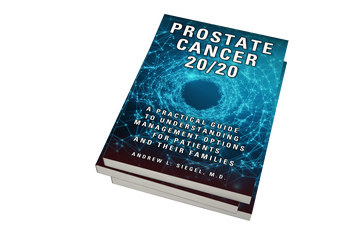Andrew Siegel MD 9/4/2021 Labor Day Weekend
I had planned on posting an entry on hyper-focus, but recently received a report on contaminated water in suburban New Jersey–an important topic–so will defer the hyper-focus post to next week.
Inheriting “good” genes and living a “healthy” lifestyle are simply not enough to ensure one’s health. Thanks to “civilization,” deforestation, and the destruction, industrialization and pollution of this planet, there are serious and escalating environmental obstacles to maintaining health. The air we breathe, the water we drink, the soil that our edible plants are grown in, the diet and chemical exposure of the animals we eat and what those animals eat all factor in to our health and wellness.

I live in lovely Ridgewood, New Jersey, a suburb of NYC known for its excellent school system and cozy downtown. Residential water is supplied by The Ridgewood Water Company that releases an annual report on our drinking water. In past years, there were reports of excess levels of arsenic in the drinking water. The most recent report states: “Ridgewood water has levels of Perfluorooctanoic acid (PFOA) above drinking water standards.”
The report continues as follows: “…Some people who drink water containing PFOA in excess of the maximum contaminant level over many years could experience problems with their blood serum cholesterol levels, liver, kidney, immune system, or, in males, reproductive system. Drinking water containing PFOA in excess of the maximum contaminant level over many years may also increase the risk of testicular and kidney cancer. For females, drinking water containing PFOA in excess of the maximum contaminant level over many years may cause developmental delays in a fetus and/or an infant. If you have a severely compromised immune system, have an infant, or pregnant, or elderly, you may be a risk group and we recommend you seek advice from your healthcare providers about drinking this water. If you have specific health concerns, consult your doctor. Boiling your water will not remove PFOA.”
PFOA, a synthetic organo-fluorine is used as an industrial surfactant, a material feedstock, and in carpeting, upholstery, apparel, floor wax, textiles, fire-fighting foam, and sealants. Levels of PFOA have been detected in virtually every American’s blood. Studies have found correlation between high PFOA exposure and adverse effects for the environment and human health including two urological cancers and four other health issues: kidney cancer, testes cancer, ulcerative colitis, thyroid disease, high cholesterol, and high blood pressure in pregnancy.
In response to pressure from the Environmental Protection Agency, the 3M Company (a primary manufacturer) as well as eight other companies agreed to phase out the production of PFOA by 2015. However, the issue is that PFOA is tenaciously persistent in the environment and present in soil, air and groundwater across the United States. Furthermore, PFOA is highly resistant to chemical breakdown. In the absence of federal regulations, New Jersey—not typically the most progressive of states— in 2020 was the first state to develop PFOA standards. In March 2021, the EPA announced that it would develop federal water regulation standards for PFOA.
The NJ standard for maximum contaminant level of PFOA is 14 parts per billion (ppb). Eleven of Ridgewood Water’s 31 treatment plants now exceed this standard, with levels ranging between 15.2-18.9 ppb. Ridgewood Water plans on dealing with this issue by blending water sources (to get the levels below the maximum contaminant level) and installing additional water treatments as developed by a state licensed engineering firm.
Although my family has been drinking bottled water for years, we have used the tap for coffee and ice. After receiving this report, we immediately stopped using tap water for coffee. The million-dollar question is if bottled water is any better. A sophisticated home water filtration system is probably in order.
Wishing you the best of health,


A new blog is posted weekly. To receive a free subscription with delivery to your email inbox visit the following link and click on “email subscription”: www.HealthDoc13.WordPress.com
Dr. Andrew Siegel is a physician and urological surgeon who is board-certified in urology as well as in female pelvic medicine and reconstructive surgery. He is an Assistant Clinical Professor of Surgery at the Rutgers-New Jersey Medical School and is a Castle Connolly Top Doctor New York Metro Area, Inside Jersey Top Doctor and Inside Jersey Top Doctor for Women’s Health. His mission is to “bridge the gap” between the public and the medical community. He is a urologist at New Jersey Urology, the largest urology practice in the United States. He is the co-founder of PelvicRx and Private Gym. His latest book is Prostate Cancer 20/20: A Practical Guide to Understanding Management Options for Patients and Their Families.

Video trailer for Prostate Cancer 20/20
Preview of Prostate Cancer 20/20
Andrew Siegel MD Amazon author page
PROSTATE CANCER 20/20 is now available at Audible, iTunes and Amazon as an audiobook read by the author (just over 6 hours).
Dr. Siegel’s other books:
PROMISCUOUS EATING— Understanding and Ending Our Self-Destructive Relationship with Food
MALE PELVIC FITNESS: Optimizing Sexual and Urinary Health
THE KEGEL FIX: Recharging Female Pelvic, Sexual, and Urinary Health
Tags: Andrew Siegel MD, environmental pollution, Perfluorooctanoic acid, PFOA, Ridgewood, water contamination
Leave a comment